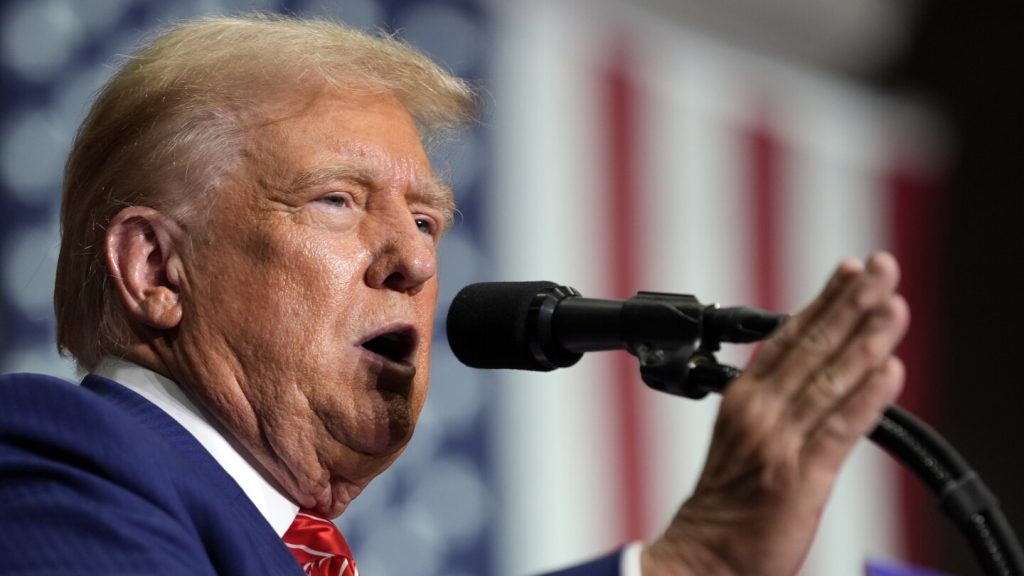In a recent conversation, former President Donald Trump admitted that he only “more or less” understood livestreaming, a popular form of broadcasting live video on social media platforms. However, he acknowledged the significance of this new form of information dissemination and credited his youngest son Barron for educating him about it. Trump’s campaign has actively embraced online spaces that appeal to younger demographics, including livestreaming platforms like Twitch and Kick, as well as YouTube, TikTok, and Instagram. He has appeared with influencers like Logan Paul and engaged with figures like Elon Musk in an effort to connect with younger conservatives.
Both Trump and Vice President Kamala Harris are vying for the attention of voters who increasingly rely on non-traditional news sources. Trump’s campaign actively engages with conservative influencers to discuss potential topics and guests, while Harris’s campaign has credentialed around 200 content creators for the recent Democratic National Convention. This shift towards using influencers as news sources represents a significant development in political advertising, allowing campaigns to target different segments of the electorate with tailored messages. While this approach offers new opportunities for outreach, it also raises concerns about the ability to manipulate and influence voters through targeted messaging.
The Trump campaign’s foray into online media is part of a broader strategy to leverage Trump’s celebrity status and bombastic personality to attract attention both online and in traditional media. By reaching out to younger demographics, including Black and Hispanic men under 50, the campaign hopes to make inroads with communities that may not typically engage with political news. Younger Americans, communities of color, and immigrant communities are increasingly turning to online sources for news, making it essential for campaigns to adapt their outreach strategies to these platforms.
During a conversation with internet personality Adin Ross, Trump engaged in discussions typically outside the realm of his usual topics, such as foreign policy and immigration. The two engaged in a playful exchange, with Ross gifting Trump a Rolex watch and the pair dancing outside a Tesla Cybertruck adorned with images of the former president. Ross, known for his provocative demeanor and controversial comments, has garnered a sizable following online but has also faced suspensions and bans from platforms due to his behavior. The political landscape, particularly for young men without a college education, is marked by a sense of challenge and grievance, which conservative politicians and internet personalities seek to address.
The CartierFamily YouTube channel, run by four men offering a right-wing perspective on political news, has attracted over 1 million subscribers by providing raw and honest opinions on current events. The group has found a niche audience of predominantly male viewers under the age of 40, tapping into a demographic that is often overlooked by traditional media outlets. By connecting with influential figures in the conservative political sphere, the CartierFamily creators have been able to amplify their content and engage with a wider audience. The Trump campaign, recognizing the importance of engaging with voters through nontraditional media, has embraced partnerships with online creators to reach diverse communities, including Black podcasters who hold significant influence over the election.
In contrast, Harris’s presidential campaign has focused on harnessing organic engagement online, particularly on platforms popular with younger Americans and people of color. The campaign has strategically utilized social media platforms like Instagram, TikTok, and YouTube to connect with supporters and amplify Harris’s message. By embracing the White House’s engagement with influencers and progressive groups, Harris’s team has been able to promote its agenda and engage with a broader audience. The campaign’s innovative approach to online outreach has received positive feedback from influencers and creators, highlighting the importance of adapting to the changing media landscape in political communication.


